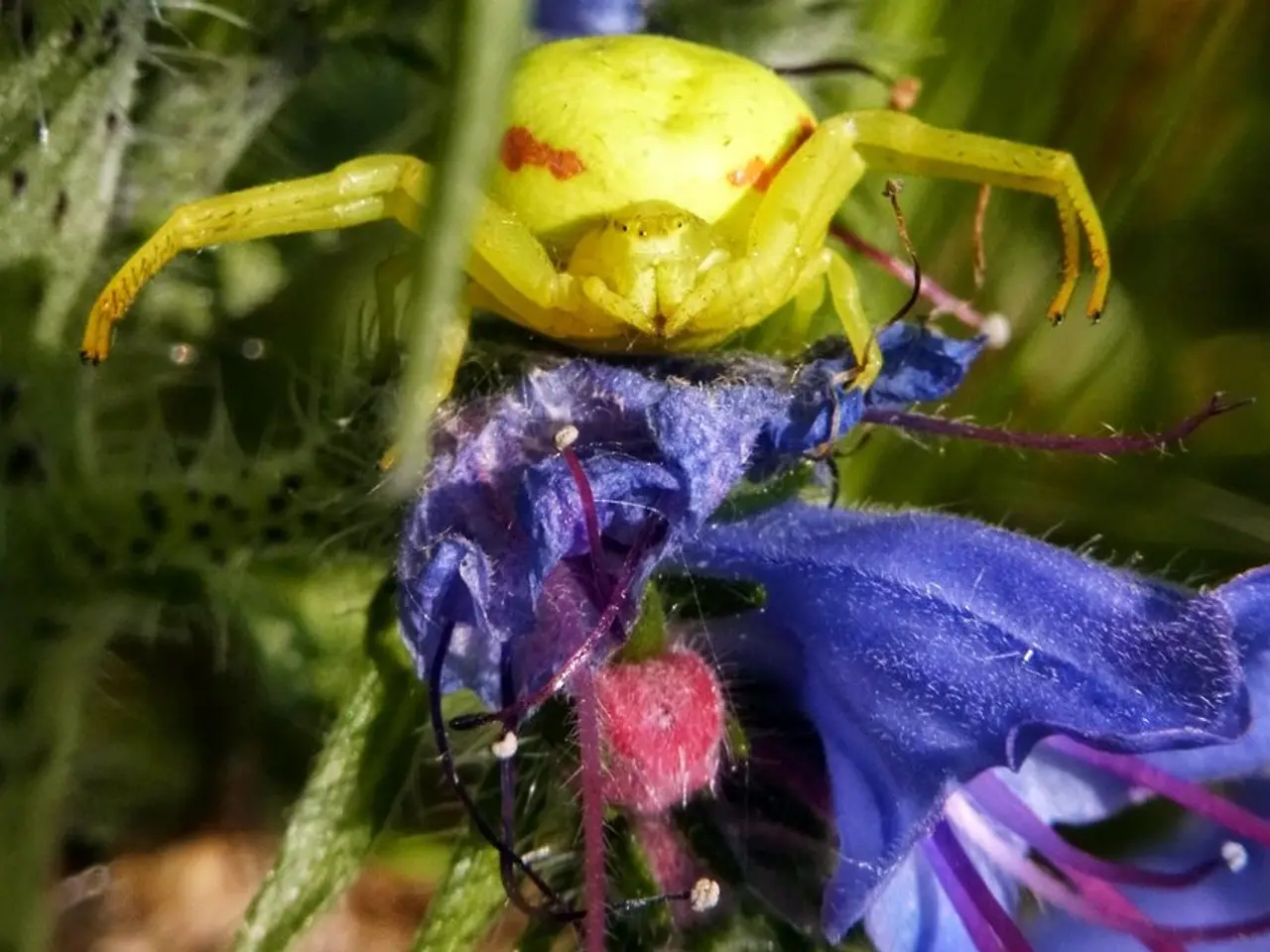French populace rallying against the reintroduction of a hazardous pesticide
France's Thiacloprid Debate: Balancing Public Health, Biodiversity, and Agriculture
The French government and public are currently engaged in a heated debate over the potential reintroduction of thiacloprid, a neonicotinoid insecticide, into the country's agriculture. Critics argue that the use of thiacloprid poses risks to public health, biodiversity, and climate policy, while proponents cite its potential benefits for crop production.
The Controversy Surrounding Thiacloprid
At the heart of the controversy is the Duplomb Law, a recently adopted agriculture law that has sparked controversy due to its conditional reintroduction of thiacloprid. Some farmers argue that the use of thiacloprid is necessary to support sugar beet and hazelnut production, while others, including environmentalists and public health advocates, are critical of the law.
Key Arguments and Responses
- Public Health: Studies suggest that neonicotinoids, including thiacloprid, can persist in the environment and enter human indoor environments, raising concerns about chronic exposure risks. A study from Indiana in 2025 found widespread indoor contamination by current-use pesticides, including insecticides similar to thiacloprid, suggesting that indoor exposures may be more common than regulatory reviews assume. Opponents of thiacloprid reintroduction argue that this underlines the need to limit such substances to protect human health.
- Biodiversity: The main ecological concern is the toxicity of neonicotinoids to pollinators and broader biodiversity disruption. Thiacloprid was originally considered somewhat less harmful to bees than other neonicotinoids, but emerging data suggest risks remain. Environmental groups in France oppose its reintroduction based on the potential to harm pollinator populations already stressed by habitat loss and climate change.
- Climate Policy: The debate also links to France’s broader climate and environmental goals. Critics argue that reliance on pesticides like thiacloprid may undermine sustainable agricultural practices and biodiversity conservation crucial for climate resilience. France's climate policies promote reducing chemical inputs to agriculture, making the reintroduction of such pesticides controversial in the context of commitments to agroecology and biodiversity-friendly farming.
- Regulatory and Agricultural Perspective: Some agricultural stakeholders and pesticide manufacturers support controlled reintroduction, emphasizing the need for crop protection tools amid pest pressures exacerbated by climate change. They argue that thiacloprid’s lower toxicity profile relative to other neonicotinoids and newer regulatory safeguards mitigate risks.
The Petition and the Response
A petition calling for the immediate repeal of the Duplomb Law was posted on the French National Assembly's website by 23-year-old student Éléonore Pattery on July 10. The petition has garnered nearly two million signatures in just two weeks, making it an unprecedented number for a text deposited on the National Assembly's platform. Despite this, Éléonore Pattery has declined interview requests, stating that she is not indispensable to the debate.
The President of the National Assembly, Yaël Braun-Pivet, is favourable to organizing a debate but maintains that it cannot reconsider the law that has been passed. Philippe Grandcolas, deputy director of the National Center for Scientific Research (CNRS), expressed concern about the potential exposure of biodiversity, including humans, to thiacloprid.
Alternative Methods
Some farmers have already adopted alternative methods to combat harmful insects, such as using flower strips in other crops and trying them in radicchio culture. Annie-Eve Gagnon, an entomologist with Agriculture Canada, is working on finding alternative methods to combat harmful insects instead of resorting to neonicotinoids like thiacloprid. The goal of "integrated pesticide management" is to limit the use of pesticides only to when they are needed.
The Future of Thiacloprid in France
The controversy in France reflects a complex balance: protecting public health and biodiversity versus maintaining pest control in a changing climate. Ongoing scientific research, such as studies on pesticide residues indoors and environmental impacts, informs this dialogue. The French government and regulatory bodies are weighing these factors in the context of EU pesticide regulations and national environmental commitments.
[1] Source: https://www.sciencedirect.com/science/article/pii/S0048969721004235
- The debate over thiacloprid in France's agriculture extends beyond agriculture, encompassing fields such as environmental-science, policy-and-legislation, and health-and-wellness.
- Social media platforms have been abuzz with discussions on the Duplomb Law, with the petition against it gaining significant traction under the general-news section.
- Besides concern for human health (particularly from indoor contamination), the environment (including biodiversity) faces potential risks due to the use of thiacloprid, leading to widespread opposition from environmentalists.
- As part of their climate-change efforts, some argue that relying on pesticides like thiacloprid goes against France's intentions for reducing chemical inputs and promoting agroecology within their agriculture sector.
- Science plays a critical role in this debate, with ongoing research providing insights into the residues of pesticides indoors and the environmental impacts of the reintroduction of thiacloprid.
- In light of the controversy, alternative methods have emerged, like integrating flower strips into crops and pursuing integrated pesticide management, to combat harmful insects without resorting to neonicotinoids like thiacloprid.




